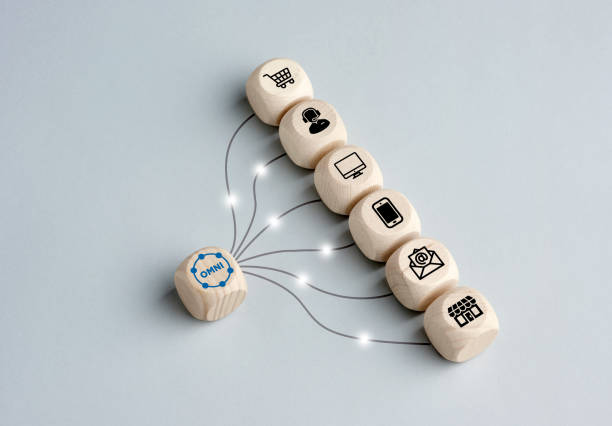Understanding Omnichannel Marketing in Healthcare

In today’s fast-paced digital world, healthcare organizations need to adopt innovative marketing strategies to stay connected with their audience. One such approach is omnichannel marketing, which ensures a seamless and consistent experience across multiple communication platforms. Whether a patient engages with your brand through a website, social media, email campaigns, or in-person events, omnichannel marketing ensures that their journey is smooth, personalized, and effective.
What is Omnichannel Marketing?
Omnichannel marketing refers to an integrated marketing strategy that unifies all touchpoints—both online and offline—to create a cohesive brand experience. Unlike multichannel marketing, which simply uses multiple channels independently, omnichannel marketing interconnects these channels so that user interactions are consistent and tailored to their needs.
Importance of Omnichannel Marketing in Healthcare
The healthcare industry is rapidly evolving, with patients and healthcare professionals (HCPs) expecting a personalized and convenient experience. Omnichannel marketing plays a crucial role in:
Enhancing Patient Engagement: Patients today interact with healthcare brands across multiple platforms, from hospital websites and mobile apps to telemedicine and social media. A seamless experience across these channels fosters trust and engagement.
Improving Healthcare Outcomes: A well-connected marketing strategy ensures that patients receive the right information at the right time, improving adherence to treatment plans and follow-ups.
Strengthening HCP Relationships: Healthcare professionals engage with medical brands through conferences, emails, and digital platforms. A consistent and integrated approach ensures that they receive relevant information tailored to their interests.
Key Components of Omnichannel Marketing in Healthcare
To implement an effective omnichannel marketing strategy, healthcare organizations should focus on the following elements:
1. Personalized Communication
Patients and HCPs expect content that is relevant to their specific needs. Leveraging data analytics and AI-driven insights can help deliver targeted messages based on demographics, behavior, and preferences.
2. Seamless Integration Across Channels
Healthcare brands must ensure that all marketing channels—social media, email, mobile apps, in-person consultations, and traditional advertising—are interconnected. This allows for a continuous and personalized journey.
3. Consistent Messaging
Regardless of the platform, the tone, branding, and key messages should remain consistent. Whether it’s an email campaign, a Facebook post, or an in-person interaction, maintaining uniformity helps strengthen brand recall and trust.
4. Leveraging Technology
Utilizing CRM systems, automation tools, chatbots, and AI-powered solutions can enhance patient interactions, making them more engaging and efficient.
5. Data-Driven Insights
Collecting and analyzing data from different touchpoints enables healthcare brands to refine their marketing strategies and offer more meaningful interactions.
Conclusion
Omnichannel marketing is revolutionizing healthcare by creating a holistic, patient-centric approach that enhances engagement, improves outcomes, and builds lasting relationships with HCPs. By implementing a well-structured omnichannel strategy, healthcare organizations can provide a more personalized, consistent, and impactful experience across all platforms.
Are you ready to take your healthcare marketing to the next level? Implement omnichannel strategies today and transform how you engage with patients and professionals!
